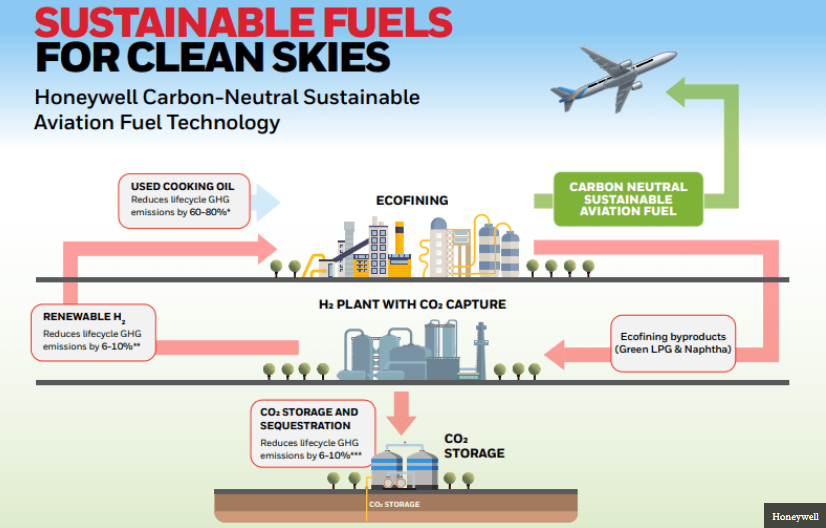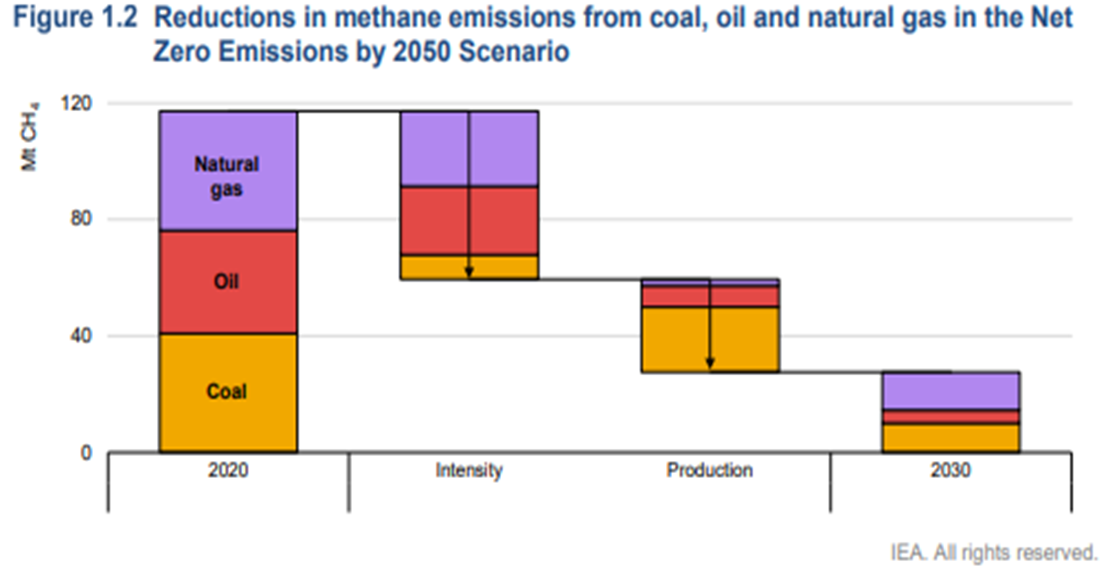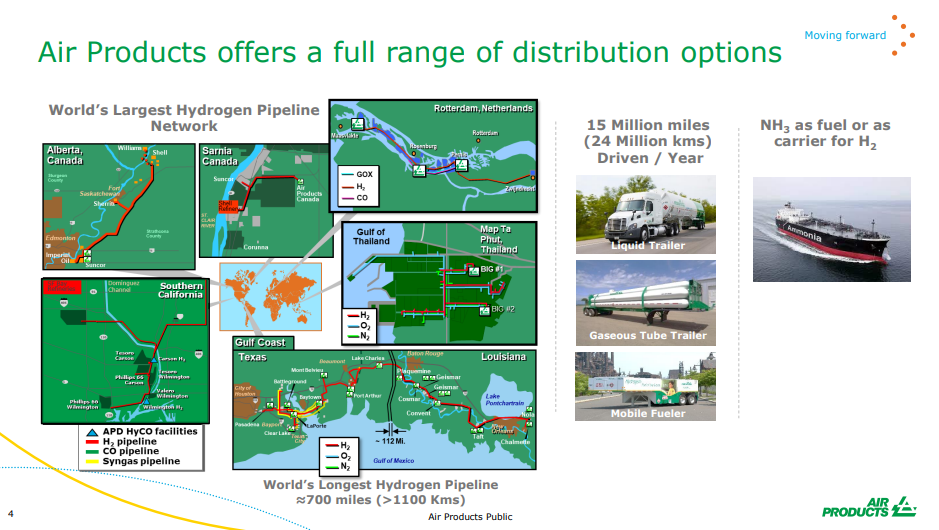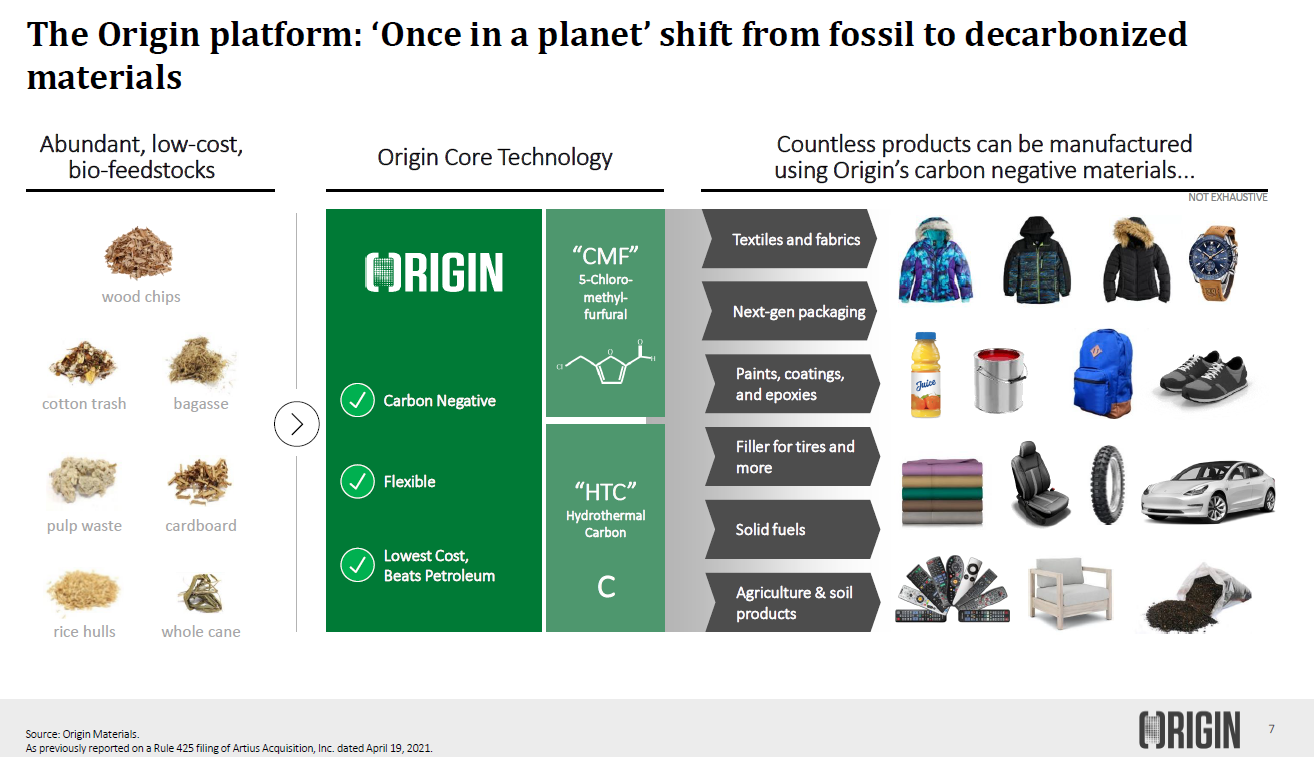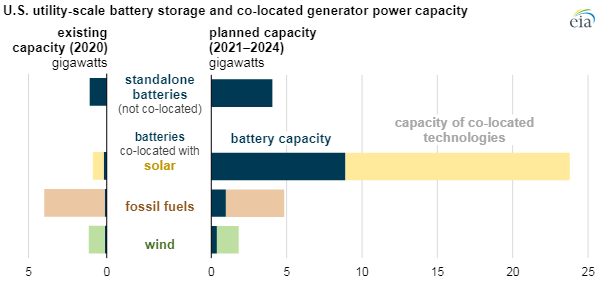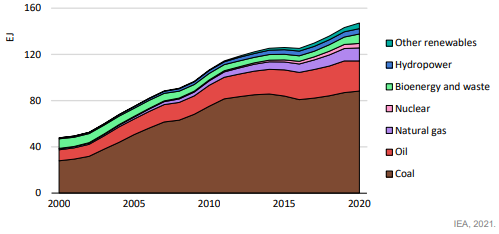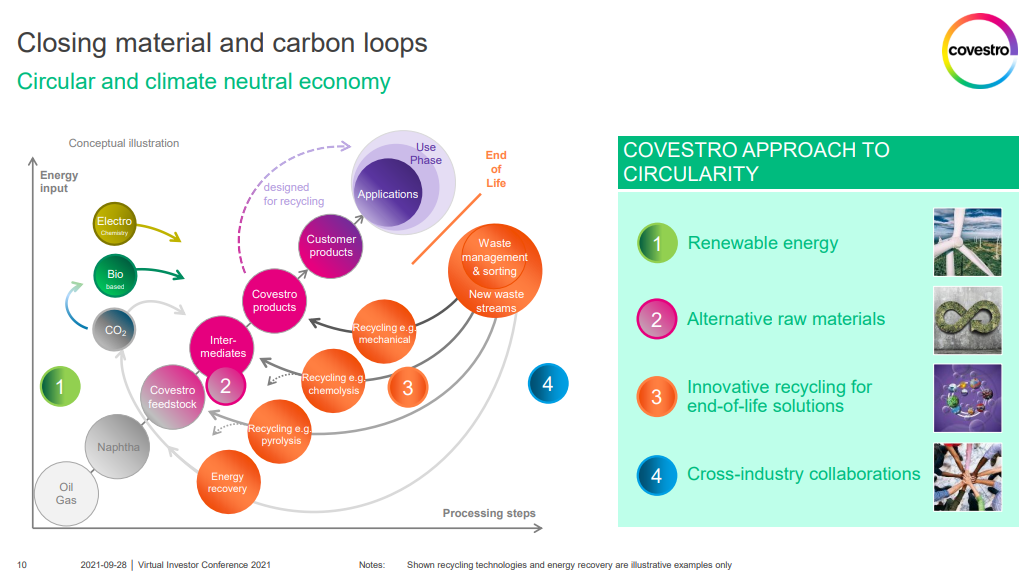We have spent a lot of time in our ESG and Climate work talking about the huge impending challenge of producing enough sustainable aviation fuel to meet airlines desired needs for 2030 and beyond and we highlighted a Ryanair release yesterday that suggested that the company would struggle to meet its 12.5% goal by 2030. The Honeywell schematic in the exhibit below is one of many different processes that are being considered to meet both the demand for sustainable aviation fuel and renewable diesel and gasoline demand. With gasoline more likely to be replaced with increased numbers of EVs over time, we believe that the sustainable fuel focus will switch to aviation as the main priority, and we will need every technology that we can get to meet the volume needs. Waste oil and vegetable oil, with carbon capture around the refining process, is one route, fermentation-based processes are another, and waste to oil is a third, although we remain skeptical about the reliability and economics around a waste gasification-based approach.
Fly Me To The Moon - Sustainably Please...
Oct 22, 2021 1:18:10 PM / by Graham Copley posted in ESG, Sustainability, CO2, climate, waste oil, vegetable oil, EVs, aviation fuel, gasoline, sustainable aviation fuel, renewable diesel
Dow And Air Products Have Got The Ball Rolling, But How Fast?
Oct 21, 2021 1:54:22 PM / by Graham Copley posted in ESG, Hydrogen, Sustainability, Polyethylene, Blue Hydrogen, Air Products, decarbonization, Dow, climate, low carbon polyethylene
The Dow chart below was included in the presentation around the Canada project and repeated today in the earnings call. We have talked about the Canada project at length as well as the more recently announced Air Products blue hydrogen project in the US. The more interesting debate from here is what will happen next. Are Dow’s and Air Product’s phones ringing off the hooks with potential customers saying “we want some of that”, or is it quieter? We suspect that the phones are ringing and ringing a lot. Perhaps because people genuinely want the low carbon polyethylene or hydrogen, but also perhaps because users of polyethylene and hydrogen are likely obligated to find out more so that they can explore both the opportunities of buying from Dow or Air Products, or evaluating what their alternatives might be. We suspect that a surge in genuine customer interest is likely, good for both Dow and Air Products, but also good for others either considering decarbonizing projects or offering a carbon-free alternative already. See our ESG and Climate piece from yesterday for more on this.
The COP26 Challenges Go Beyond Net-Zero
Oct 20, 2021 2:02:43 PM / by Graham Copley posted in ESG, Sustainability, CO2, Carbon, Emissions, Net-Zero, IEA, carbon value, COP26, Climate Goals, Paris Agreement
The Financial Times opinion piece linked in the bullet below and from which the chart is taken has used the IEA data that we have featured in recent work. The piece comprehensively walks through how the world is likely to come up short, and while it gives the measures that are needed and the money that likely needs to be spent, it is not an optimistic review of what will most likely occur. We remain firmly of the belief that much more progress could be made if there was a global agreement to make carbon very expensive – accompanied by an agreement on how to share the spoils of that expensive carbon such that the inflationary pressures are offset where they are most needed and that environmental injustices are minimized – this is idealistic are we recognize that.
Chevron Joins The Club, But The Focus On Cleaning Up Its Fossil Fuel Footprint Could Be Important
Oct 12, 2021 2:05:37 PM / by Graham Copley posted in ESG, Carbon Capture, Biofuels, Climate Change, Sustainability, LNG, Methane, CCS, Renewable Power, Carbon, Net-Zero, fossil fuel, carbon abatement, natural gas, carbon trading, offsets, EIA, Chevron, methane emissions, CO2 footprint, COP26, low carbon, methane leakage, carbon credits
A couple of things worth highlighting in today's daily report – the first being Chevron’s move to join the net-zero club – focusing all eyes now on ExxonMobil in particular but also the rest of the US E&P crowd. Chevron will have some major challenges getting to net-zero and will likely face much of the same skepticism that bp, Shell, and TotalEnergies attracted in Europe initially and still face today. The Europeans have placed a lot of their bets on moving into renewable power – for the moment, Chevron is focused on moving to net zero in its own operations, which we read as biofuels and a lot of CCS. Given the acute shortage of international natural gas, it would make the most sense for the independent natural gas E&P companies and the LNG sellers to jump on the same boat. By promising low carbon natural gas and LNG, the industry is much more likely to gain support for the expansion that the world needs to counter some of the EIA assumptions around coal and petroleum product use from 2030 to 2050. Of course, it would be a whole lot easier for the US industry to do this if they had a value on carbon to work with! The chart below looks at one of the core clean-up issues, which is methane leakage. This is a subject we cover extensively in our ESG and Climate service linked here.
More Green Credentials On Show; More To Come
Oct 8, 2021 12:25:55 PM / by Graham Copley posted in ESG, Hydrogen, Chemicals, Climate Change, Sustainability, Air Products, Dow, COP26, chemical companies
We expect to see a step up in chemical companies parading their green credentials – or plans for more green credentials, not just because COP26 is ahead but because it has now become a competitive issue. Dow’s view that it may be able to sell low carbon polyethylene in the US at a premium to regular polyethylene reflects a fairly rapidly changing narrative with customers, many of whom are also trying to accelerate their green credentials. For a couple of years, we saw packaging companies, for example, talk in broad terms about ambitions around recycled/renewable content, carbon footprints, etc. Now we are seeing the results of them trying to put their ambitions into practice and they are looking for tangible solutions from their suppliers to help them meet the pledges that they have made to consumers. For many of the packagers, the cost of the packaging is a very small component of the product cost and we would expect the packagers to look at more expensive packaging solutions if it gives them a better label. In the Air Products chart below, the company is using the La Porte start-up to remind us that it is already a huge player in hydrogen and hydrogen infrastructure. See our recent ESG and Climate Report.
Existing Carbon Black Producers Should Look For Ways to Decarbonize
Oct 6, 2021 2:27:54 PM / by Graham Copley posted in ESG, Climate Change, Sustainability, CCS, CO2, Carbon Black, Carbon, Emissions, PET, decarbonization, Origin Materials
We think that Orion Engineered Polymers and its fellow traditional carbon black producers could be in for a rough ride.
Hydrogen Investments: Companies Weighing Alternatives As They Should
Oct 5, 2021 1:36:33 PM / by Graham Copley posted in ESG, Hydrogen, Polymers, Climate Change, Sustainability, CCS, Renewable Power, Emissions, Net-Zero, ethylene producers, Climate Goals
The gaps in the exhibit below are not surprising as 2050 is a long way away and we would not expect all of the needed capacity to be announced or pledged yet, especially as many companies are still weighing alternatives. For example, as an ethylene producer, you have 5 paths – hydrogen as a furnace fuel – electric power as a heating medium – stick with what you have and use CCS – find an alternative route to make the polymers – make alternative polymers.
If We Want Green Hydrogen, We Better Start Now
Sep 30, 2021 2:20:51 PM / by Graham Copley posted in ESG, Hydrogen, Climate Change, Sustainability, Green Hydrogen, power, solar, batteries, wind, clean energy, battery storage, green investments
The battery storage investment chart below is interesting in that it shows significant pairing with Solar facilities and less with wind. If we are to meet the green hydrogen goals that many are optimistically predicting over the next 10 years, then the new wind and solar investments need to be paired with hydrogen and hydrogen-based swing power generation capacity. This is the only way that countries will develop effective hydrogen grids. Simply having one or two large hydrogen facilities and/or import facilities will result in very inefficient distribution models either for fuel cell vehicles or for heating and swing power generation. A distributed network for hydrogen makes much more sense and modular electrolyzers coupled with modular hydrogen power generators is a more holistic model, with much more flexibility than adding batteries. Granted, the battery technology is tested and available today, but the broader ambitions for hydrogen will not be met if we do not get out of the blocks soon.
A Climate Plan For China: Ambitious But Late
Sep 29, 2021 2:06:29 PM / by Graham Copley posted in ESG, Climate Change, Sustainability, CO2, Emissions, Net-Zero, power, clean energy, climate, chemical prices
Overnight there has been a very good IEA report on how China could get to net-zero by 2060, and further news of more industries hit by power cuts because of power shortages, some of which are apparently due to tighter emissions standards. These are both important and far-reaching topics and will require some analysis to provide the kind of insight that we believe is necessary, and accordingly, we will push these to next week’s report (all input welcome). In the meantime, we have included a couple of charts that show the way up and the IEA view of the way down. The power outages are interesting as while they may cause some manufacturing cutbacks and we have seen recent news to that effect, China has overbuilt in the last couple of years relative to domestic demand growth, and with port and shipping congestion the country has surpluses of many products sitting around at very low values. The power moves may help correct some of these imbalances and we are already seeing some chemical prices bounce off recent lows because of production cutbacks. We discussed the acetic acid chain in one of our dailies last week – linked here.
Pretty Charts Hide Very Complex ESG Problems
Sep 28, 2021 12:43:15 PM / by Graham Copley posted in ESG, Recycling, Climate Change, Sustainability, Carbon, Emissions, Mechanical Recycling, recycled polymer, Gevo, feedstock, chemical recycling, polymer, biodegradable plastics, Origin, polymer demand, Covestro
Companies are being encouraged/forced to produce climate plans by ever more focused shareholders many of whom only have a passing understanding of how some of the companies operate and how they might best set a course to lower emissions and otherwise be better stewards of the environment. The pretty graphic by Covestro below likely looks much better than the data and ambition behind it really are. This is not necessarily meant as a criticism of Covestro, but the company like many others is being challenged to explain a very complex, process, and engineering-heavy set of options to an audience not really qualified to understand them – pictures with circles are easier.


